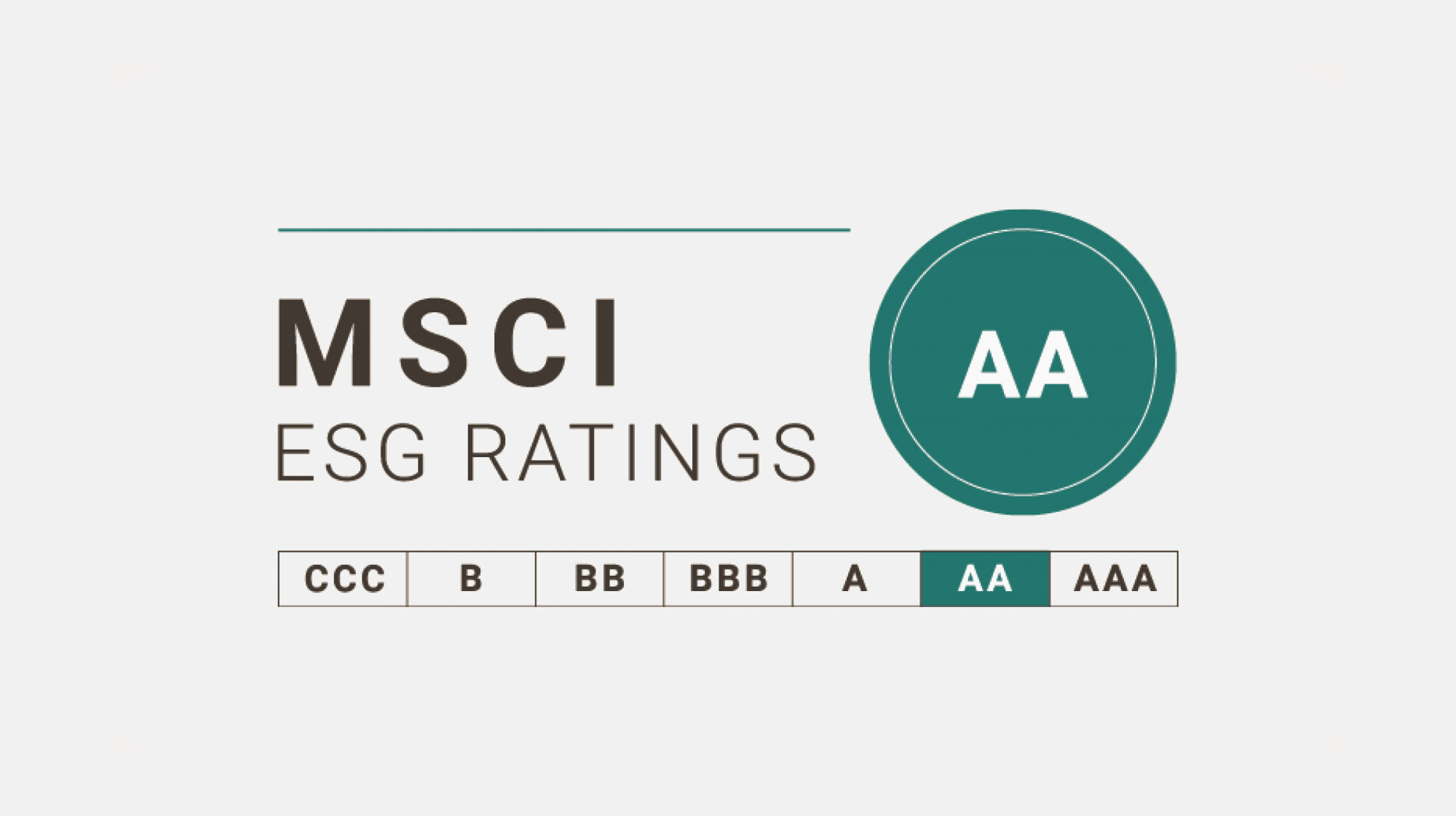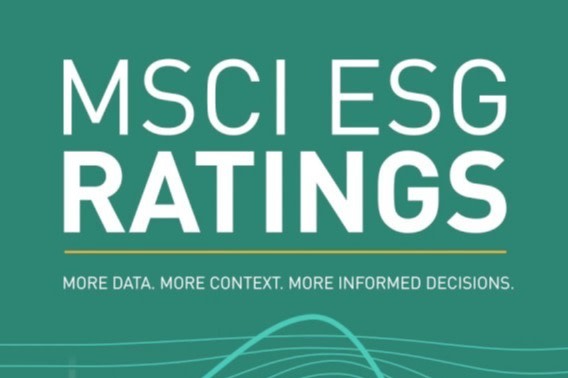ESG and Stock Price: What is the Effect of ESG Rating Changes on Returns?
MSCI Inc.

In recent years, there has been a notable increase in attention towards environmental, social, and governance (ESG) factors as pivotal indicators of a company’s overall sustainability and responsible business practices. ESG ratings, which assess a company’s performance in these areas, have become crucial tools for investors seeking to align their portfolios with their values and navigate financial markets.
This article delves into the intricate relationship between changes in ESG ratings and stock returns (ESG and stock price), exploring how shifts in ESG ratings can impact financial performance and influence investor decisions.
Featured: Majority Of MSCI Funds To Lose ESG Ratings
Introduction to ESG Investing
Environmental, Social, and Governance (ESG) investing is an investment approach that considers the impact of a company’s operations on the environment, society, and its governance practices, in addition to its financial performance. ESG investing has gained significant attention in recent years, as investors increasingly recognize the importance of non-financial factors in driving long-term financial returns. By incorporating ESG considerations into investment decisions, investors can better manage risk, capitalize on opportunities, and contribute to a more sustainable future.
Understanding ESG Ratings
ESG ratings evaluate a company's performance across three key categories: environmental, social, and governance. Environmental factors assess the company's impact on the natural world, including carbon emissions, waste management, and resource usage. Social factors encompass labour practices, diversity and inclusion, and community engagement. Governance factors focus on the company's leadership, board structure, transparency, and ethical practices.
These ratings are provided by various ESG rating agencies, such as MSCI, Sustainalytics, and Bloomberg. These agencies utilise comprehensive data analysis to evaluate companies' performance in these areas and assign them a numerical score or rating.
Featured: Improving Diversity, Equality and Inclusion In Your Workplace
The ESG-Performance Connection
An important question arises, which is likely the most critical bottom-line concern in the push to effectively transition from ‘business as usual’ to a global economic model predicated on sustainability: Is there a correlation between a higher ESG rating and improved financial performance?
Extensive research has delved into the relationship between firms' ESG performance and long-term stock returns, and although the findings have been inconclusive, a growing body of evidence suggests a positive link between strong ESG performance and long-term stock returns.
Several mechanisms contribute to this connection. Firstly, companies with high ESG ratings often demonstrate robust risk management practices, positioning themselves well to navigate future challenges such as regulatory changes or shifts in consumer preferences. By doing so, these companies can potentially mitigate regulatory fines and litigation risks, safeguarding their bottom line.
Secondly, ESG considerations can impact a company's reputation and brand value. Companies that exhibit positive social and environmental practices are more likely to attract socially conscious consumers, which can translate into increased sales and a larger market share. Equally, those that exhibit low social scores may face an uphill battle in terms of attracting talent.
Lastly, companies with strong governance structures tend to make sound strategic decisions and allocate resources efficiently, thereby positively influencing their financial performance.
By exploring the relationship between ESG ratings and financial performance, we can gain valuable insights into the potential benefits of prioritizing environmental, social, and governance factors in business practices.
Related: 5 Tech Companies That Support Employee Well-Being Fantastically
Understanding the Effect ESG Rating Changes on Stock Returns
ESG ratings are not fixed; they can change as companies enhance or decline in their ESG performance. When an ESG rating shifts, it can have a noticeable impact on a company’s stock returns and stock return volatility.
Positive Rating Change: A company that undergoes an upward ESG rating revision is likely to benefit from improved investor sentiment. This positive sentiment can generate increased demand for the company's stock, potentially driving up its price and resulting in positive stock returns.
Negative Rating Change: Conversely, a downgrade in ESG rating can raise concerns among investors. A deteriorating ESG rating may indicate underlying operational weaknesses or a lack of long-term sustainability planning. Such concerns can erode investor confidence, possibly resulting in lower stock prices and negative stock returns.
Investor Behavior and ESG
ESG ratings have become increasingly important, not only because they can influence financial performance, but also due to changing preferences among institutional investors. In today’s world, investors, especially millennials and the younger generation, actively seek investments that align with their values. Consequently, companies with robust ESG performance have the potential to attract a wider and more devoted investor base.
Related: Why Anti-ESG Funds Aren’t Winning Over Investors
ESG Integration in Investment Strategies
ESG integration in investment strategies has transitioned from a niche approach to a mainstream practice, impacting fund flows and investor sentiment. Nowadays, various investment funds, such as mutual funds, exchange-traded funds (ETFs), and pension funds, actively incorporate ESG considerations into their decision-making processes.
This shift is fueled by the increasing demand from investors for socially responsible investments and the mounting evidence of the potential financial benefits associated with companies that prioritize ESG performance.
Positive Screening: Positive screening entails investing in companies that excel in ESG performance. As these companies enhance their ESG ratings, they become appealing targets for investors who wish to align their portfolios with sustainability objectives. This growing demand can lead to an increase in the demand for their stocks and potentially result in positive stock returns.
Negative Screening: Conversely, negative screening involves excluding companies with poor ESG practices from investment portfolios. By doing so, investors with ESG consciousness can limit their interest in these companies' stocks. Consequently, companies that experience negative changes in their ESG ratings may face downward pressure on their stock prices and returns.
ESG-Themed Investing: ESG-themed investing revolves around targeting specific ESG-related themes, such as clean energy, gender diversity, or sustainable agriculture. Companies operating within these themes are likely to attract investors who believe in the long-term growth prospects of these industries. This focused demand can significantly impact stock prices and returns, especially when positive ESG developments occur within these sectors.
Related reading: ESG Investing: The Transition from Stewardship to Integration
Volatility and Long-Term Perspective
It is important to acknowledge that the impact of changes in ESG ratings on stock returns may not always be immediate. Short-term fluctuations in stock prices are influenced by various factors, including market sentiment, macroeconomic trends, and geopolitical events. ESG rating changes might not overshadow these broader market influences right away.
However, the true strength of ESG considerations lies in their potential to mitigate risk and enhance returns through ESG investments in the long run. By prioritizing sustainable practices, companies are better equipped to navigate future challenges, such as climate-related risks or shifts in consumer preferences.
This enhanced resilience can ultimately contribute to stable financial performance and positive stock returns, particularly during periods of market instability.
ESG Ownership and Corporate Financial Performance
Research has shown that ESG ownership can have a positive impact on corporate financial performance. A study by Harvard Business Review found that companies with high ESG ratings tend to outperform those with low ESG ratings in terms of stock price performance. Another study by MSCI found that ESG ownership is associated with lower stock price volatility and higher returns on equity. These findings suggest that ESG ownership can be a valuable indicator of a company’s financial health and potential for long-term success.
Materiality of ESG Factors
The materiality of ESG factors refers to the extent to which they are relevant to a company’s financial performance and long-term sustainability. Material ESG factors can vary by industry and company, but common examples include climate change, human capital management, and supply chain management. Investors can use ESG ratings and research reports to identify material ESG factors and assess their potential impact on a company’s financial performance.
Regulatory and Reporting Landscape
The regulatory landscape surrounding ESG disclosures and reporting is rapidly evolving. As governments and regulatory bodies worldwide underscore the significance of ESG considerations, companies are under growing pressure to provide precise and comprehensive ESG data.
These disclosures can have an impact on ESG ratings, influencing investor perceptions and potentially leading to changes in stock prices and returns.
Challenges and Limitations
While the connection between changes in ESG ratings and stock returns shows promise, it is not without challenges and limitations in the stock market. ESG ratings can vary considerably among different rating agencies, resulting in disparities in how investors perceive a company’s ESG performance.
Furthermore, the absence of standardized ESG metrics and the potential for greenwashing (presenting a misleading positive image of a company's ESG practices) can complicate accurate assessments.
Read more on Greenwashing: What Are The Main Greenwashing Tactics Companies Use?
Takeaways
The relationship between changes in ESG ratings and stock returns is a complex and multifaceted subject that encompasses stock performance, financial performance, and investor sentiment.
While quantifying the precise impact of ESG rating changes on stock returns can be challenging due to various influencing factors, there is a growing consensus that companies with strong ESG performance are better positioned for long-term success. Investors, companies, and policymakers must recognize that sustainable business practices are no longer optional, but rather have the power to shape the financial landscape of the future significantly.
As ESG considerations continue to evolve, their influence on stock returns will remain a topic of great interest and ongoing research. Follow more sector ESG news, movements, and views at our Sustainable Finance page. More questions? Check out our FAQs.






